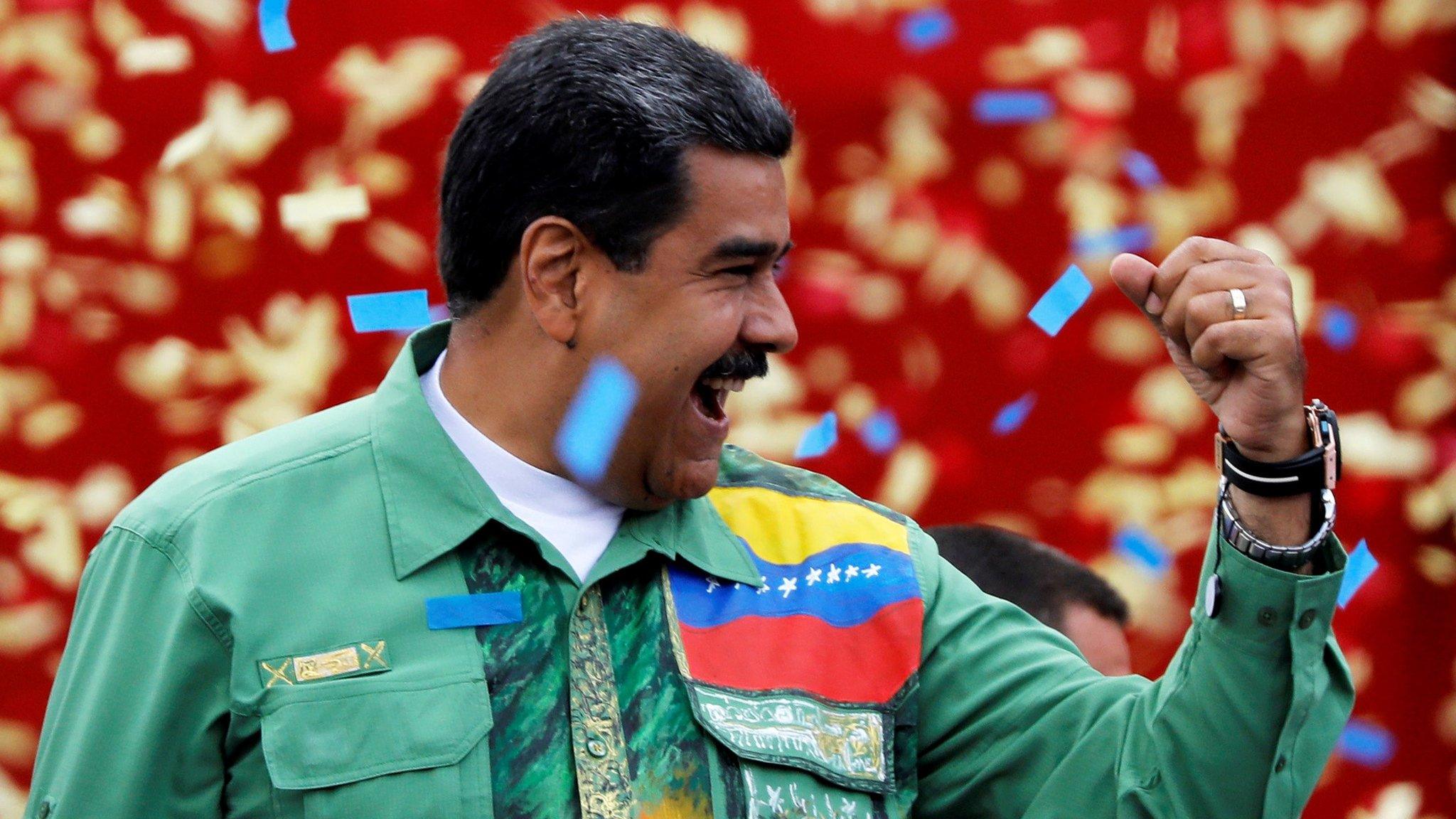Latin American leaders back Venezuela over US spat
- Published
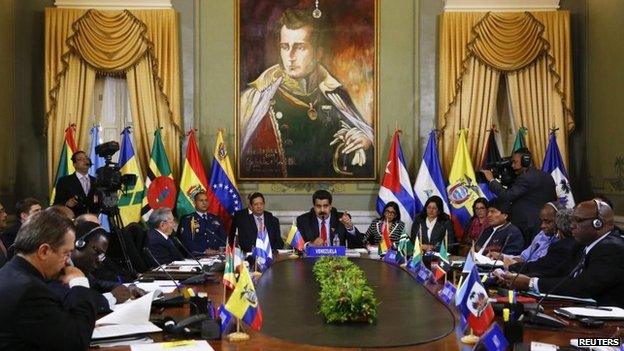
Members of the Alba regional bloc gathered for an emergency summit in Caracas
Members of the Alba regional group expressed their support for Venezuela on Tuesday in the face of increasing tensions between the US and Venezuela.
At an emergency summit, Latin American left-wing leaders urged the US to repeal an executive order which declared Venezuela a threat to the national security of the US.
Venezuelan President Nicolas Maduro stressed his country was no threat.
The two countries have been trading barbs for months.
'No threat'
Tension shot up after the US published an executive order on 9 March announcing sanctions on seven Venezuelan officials suspected by the US of committing human rights abuses.
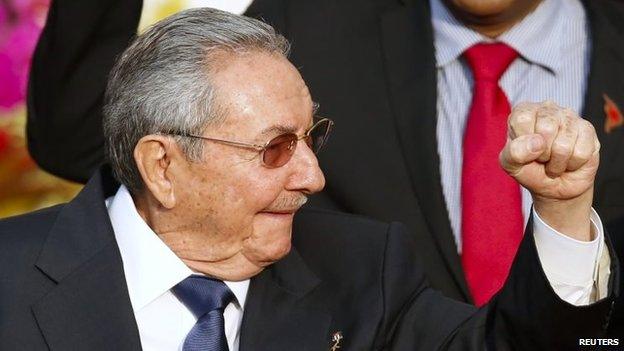
Raul Castro lent strong backing to the Venezuelan leader, Nicolas Maduro
In the order, US President Barack Obama stated that the situation in Venezuela, including "the government's erosion of human rights guarantees (...) constitutes an unusual and extraordinary threat to the national security and foreign policy of the United States".
The wording of the order caused outrage not only with Venezuelan government officials, but also among its regional allies.
"Venezuela has no plans, did not have, nor will it ever have plans to attack the United States or hurt anyone," Mr Maduro said at the Alba summit in the Venezuelan capital, Caracas.
He received strong backing from the Cuban leader, Raul Castro.
Mr Castro, who announced a rapprochement between his government and that of the US in December after decades of animosity, said that "the US needs to understand once and for all that it cannot seduce or buy Cuba, just as it cannot intimidate Venezuela".
"Our unity is indestructible," he added.
Election plea
Bolivian President Evo Morales said that "the US government must understand we are not living in imperial times of the past".
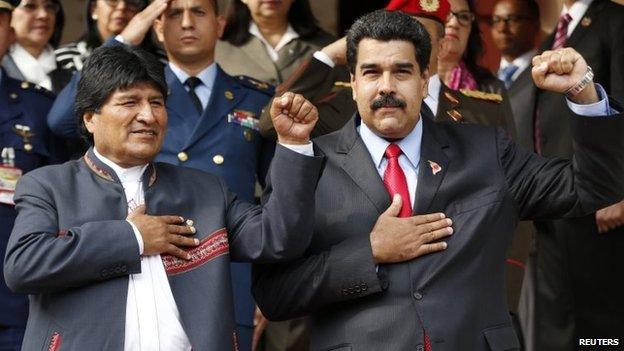
Evo Morales said Latin American nations stood united against "US imperialism"
Nicaraguan President Daniel Ortega said that it was the US and not Venezuela which was "a threat to global security, this is not rhetoric, it is reality".
Ecuadorean Foreign Minister Ricardo Patino questioned what the US, a country which he said "has made torture legal and (...) developed the most powerful mass surveillance system", could teach Latin American nations about human rights.
At a Senate hearing in Washington, the US Deputy Assistant Secretary for South America and Cuba, Alex Lee, meanwhile urged Latin American nations "to emphasize to the [Venezuelan] government the absolute importance of holding free and fair elections".
Parliamentary elections are due to be held in Venezuela later this year. The exact date has yet to be announced.
Mr Maduro won the presidential polls in 2013 by a razor-thin margin.
Opposition leader Henrique Capriles cried foul, but following an audit of the electronic voting system, the election authority confirmed Mr Maduro's poll victory of 50.7% of votes to Mr Capriles's 49.1%
In local elections eight months later, the government coalition won 54% of the vote, a comfortable 10-point lead over the opposition.
Mr Maduro's approval rating has, however, dropped considerably since then and many Venezuelans have expressed their discontent with widespread shortages of basic goods and high levels of insecurity.
- Published10 March 2015
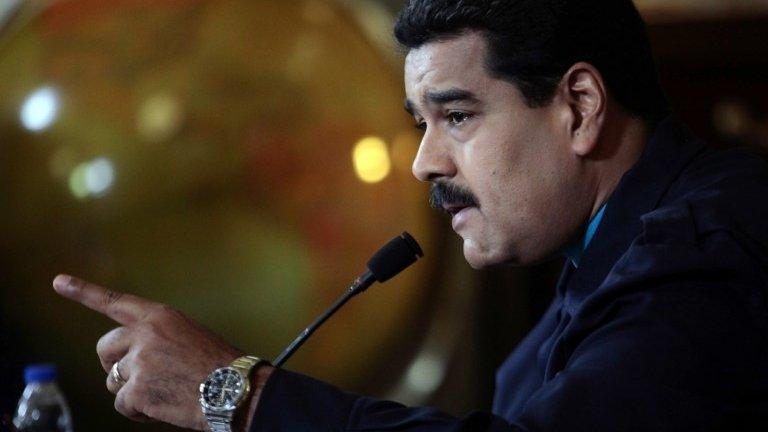
- Published5 March 2015
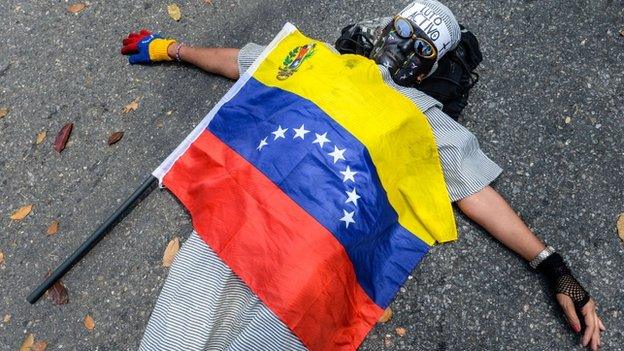
- Published28 January 2019
